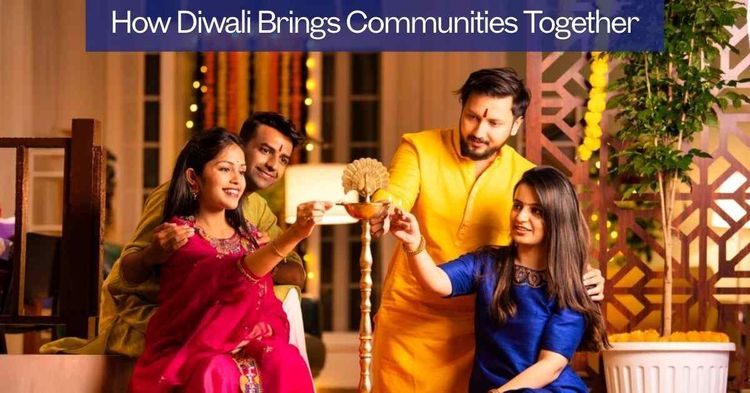Festivals are an essential part of human culture because they provide chances for learning and social interaction in addition to being occasions for joy. Among them, Diwali is an important example of how group festivities promote harmony and shared values. Students can learn important lessons about empathy, teamwork, and cultural respect by comprehending the significance of such festivities.
READ| Diwali and its Environmental Impact: How to Celebrate Eco-friendly Diwali
Millions of people celebrate Diwali, which represents the triumph of good over evil. It is celebrated with a variety of customs, including praying, exchanging sweets, burning oil lamps (diyas), and setting off fireworks. The legends of Lord Rama, Lord Krishna, and Goddess Lakshmi are frequently linked to the deep-rooted meanings of each of these practices. Although the celebrations may differ by area and community, the underlying theme is always the victory of optimism and hope.
READ| Diwali 2024 Date: When is Deepawali? All You Need to Know About the 5 Days Festival of Lights
One of the primary ways Diwali brings people together is through community engagement. During this festival, neighbourhoods come alive with celebrations, decorations, and communal Participation in the community is one of the main ways Diwali unites people. Neighborhoods come alive with festivities, decorations, and group prayers throughout this event. Here are some aspects that highlight this connection:
READ| The Role of Dhanteras in Promoting Wealth and Well-Being in Society
Festivals like Diwali serve as platforms for promoting inclusivity and understanding among different cultural and religious groups. This aspect is particularly valuable for students, who are often learning to navigate diverse environments.
Diwali places a strong focus on virtues like generosity, gratitude, and mindfulness. As kids grow older and build their character, these values are crucial lessons for them to learn.
Charity & Almsgiving: In keeping with the festival's spirit of giving, a lot of individuals make donations to charity causes during Diwali. The value of giving back to the community and its effects on people in need can be taught to students. Practices of Gratitude: People are encouraged to show their appreciation for their blessings throughout the festival. By thinking on what they have to be grateful for, students can develop mindfulness and a positive outlook. 4. Environmental AwarenessDiwali festivities have also changed in recent years to emphasize environmental sustainability. For today's students, who will eventually face major environmental concerns, this shift is especially important.
Eco-Friendly Practices: By encouraging the use of biodegradable decorations and minimising the use of firecrackers, many communities are now encouraging eco-friendly celebrations. During the festival, students can work on initiatives that support sustainable practices, encouraging environmental responsibility. Awareness programs: During Diwali, schools frequently take part in awareness programs on the effects of pollution, emphasising the value of preserving the environment. The future generation may be motivated by this instruction to give environmental issues top priority during their festivities. 5. Life Skills DevelopmentStudents get the opportunity to acquire vital life skills by taking part in celebrations such as Diwali.
Organisation and Planning: It takes organisation, coordination, and execution to get ready for a celebration. While planning events or taking part in community service projects, students can gain experience in efficient time and resource management. Creativity and Expression: Students can show their creativity during Diwali by participating in traditional crafts, cooking, and art forms. These encounters can encourage students to discover their skills by boosting their self-esteem and confidence.To sum up, festivals like Diwali are much more than just festivities; they provide significant opportunities for people to connect, share experiences, and gain knowledge from one another. These celebrations teach kids important life skills about empathy, teamwork, respect for culture, and environmental responsibility. Students can build principles that will benefit them throughout their life, promote inclusivity, and gain a deeper understanding of their communities by embracing the spirit of Diwali.


















































